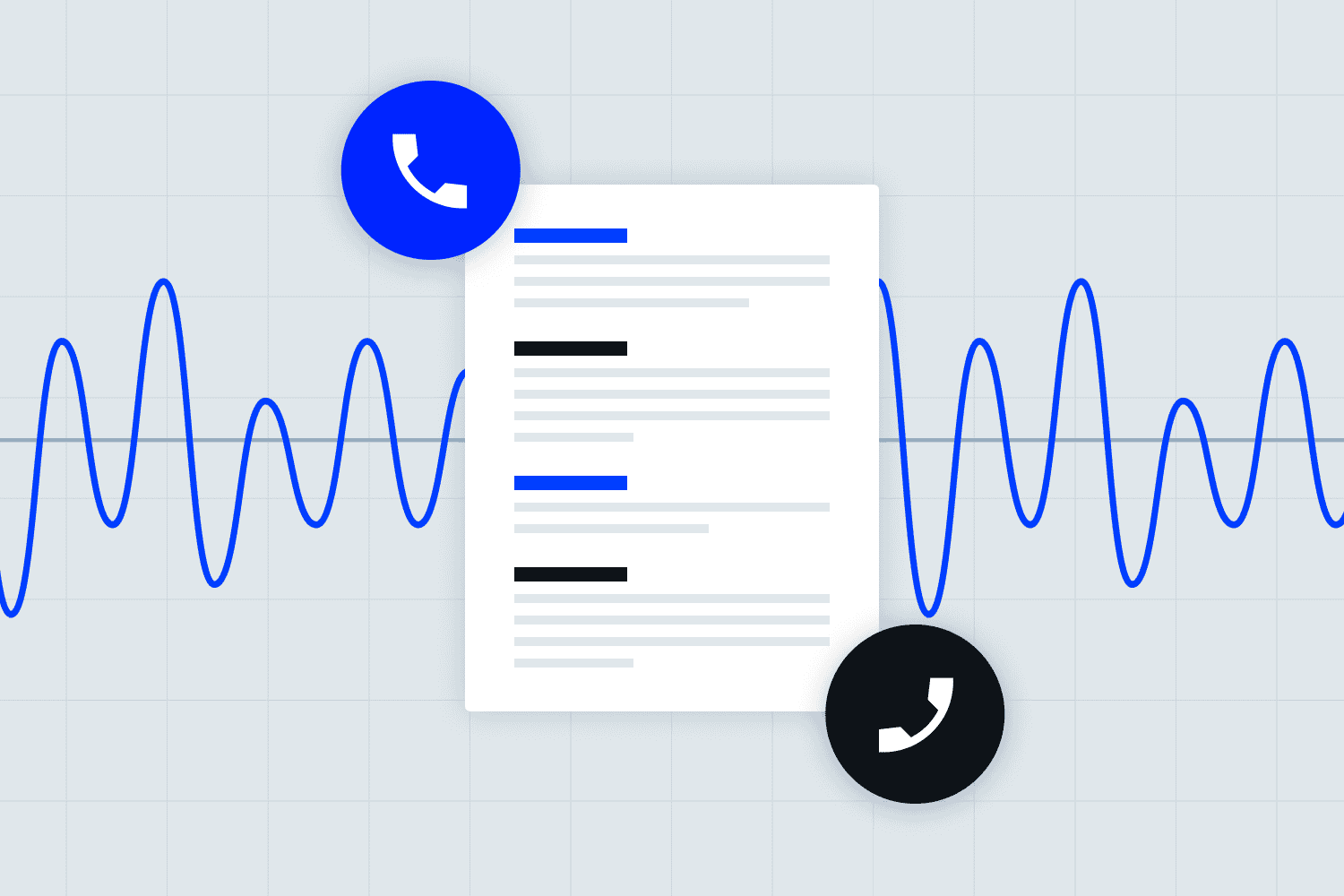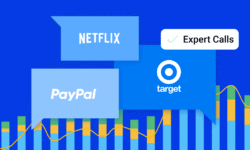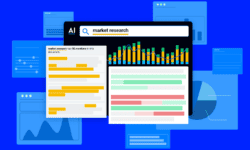The landscape of expert networks has undergone a significant evolution as newer operating models within the industry now offer valuable expert insights at lower costs and time investments. However, the true value of expert interviews lies not just in access to subject matter experts, but also in the skill of the analyst conducting them.
A seasoned analyst is one who has mastered the art of expert call interviews to ensure each interview is extracting premium quality insights that accurately inform the user’s investment process. However, knowing how to gauge the overall quality of an interview by assessing the analyst’s questions is critical when choosing the right expert network for you.
AlphaSense, a leading artificial intelligence (AI)-based market intelligence platform, offers proprietary Expert Insights through its extensive expert transcript library and Expert Call Services. This combined offering is a powerful resource for expert perspectives with the guarantee that every interview is conducted by an experienced and qualified buy-side analyst for superior quality insights.
But what exactly makes an expert interview exceptional? Among the leading buy-side analysts who conduct the expert interviews that we publish in the AlphaSense expert transcript library, we asked four of our leading analysts how they mastered the craft.
In this guide, we explore the art of expert interviews through the lens of top-tier analysts at AlphaSense to help you identify and conduct premium quality interviews like those available through Expert Insights.
Understanding Expert Call Interviews
In the competitive landscape of business and investment, the ability to quickly access deep, actionable insights can significantly alter the decision-making process. Expert network calls stand out as a crucial resource in this regard, providing direct access to specialized knowledge and firsthand industry experience.
Expert network calls, also known as expert consultations, facilitate a professional dialogue between clients seeking specific insights and industry experts possessing the requisite knowledge and experience. These calls are typically arranged via platforms, like AlphaSense and Tegus (now part of AlphaSense), which connect users with leading industry experts to discuss specialized topics, obtain advice, or receive targeted analysis. Whether the need is for strategic decision-making, market analysis, or investment guidance, expert network calls provide a direct line to invaluable expertise.
Expert network calls are completely legal, provided they adhere to strict compliance standards regarding the sharing of non-public, sensitive information. Reputable platforms like AlphaSense or Tegus ensure that all calls are conducted within legal and ethical boundaries, with robust mechanisms in place to prevent the disclosure of material non-public information (MNPI), safeguarding all participants.
Benefits and Use Cases of Expert Calls
There are numerous advantages of utilizing expert calls for primary research as they offer a fast track to specialized knowledge, saving significant time and resources that might otherwise be spent navigating complex research channels.
Expert network calls are instrumental across various sectors of the finance and business world, with each of the following utilizing these consultations to enhance their strategic capabilities:
- Private Market Investors – Private market investors leverage expert calls to gain a clearer understanding of niche markets or to evaluate unlisted companies. These insights are crucial for identifying undervalued opportunities or assessing potential investment risks, and ultimately getting a competitive edge in a less transparent market segment.
- Public Market Investors – Investors in public markets use expert calls to supplement their research, integrating expert insights with other data sources such as financial reports and market analysis. This comprehensive approach helps in making informed decisions about buying or selling stocks and understanding broader industry trends.
- Venture Capitalists – Venture capitalists utilize expert calls to validate business models, assess market potential, and understand industry dynamics. These insights directly inform investment decisions, particularly in emerging sectors or startups where traditional data may be scarce.
- Hedge Funds – For hedge funds, expert calls are a strategic tool used to gain detailed insights into specific industries or companies. These insights help in formulating strategies that anticipate market movements, thereby optimizing investment positions.
- Critical Contemporary Perspectives – Expert calls also offer access to contemporary perspectives that are crucial for staying ahead in rapidly changing markets. This access to real-time, relevant insights helps businesses and investors adapt to emerging trends and regulatory changes, maintaining a proactive approach to market challenges.
For businesses and investors, expert calls provide streamlined access to crucial insights from thought leaders and foster networking opportunities for unique perspectives and strategic advice.
Conducting an Expert Call
Conducting an effective expert call begins with identifying the precise insights needed, whether for strategic decision-making, market analysis, or investment evaluation. This involves defining specific areas of expertise and engaging with a platform like AlphaSense to connect with suitable experts. AlphaSense vets potential experts to ensure their knowledge and experience align with the client’s requirements, using thorough background checks and interviews.
During the scheduling of the call, clients prepare by formulating detailed questions and discussion points to maximize the value of the interaction. The call itself should be focused and dynamic, with the client actively engaging, asking follow-up questions, and clarifying points to delve deeper into the subject matter. Taking detailed notes or requesting a transcript can help capture crucial insights for later reference.
After the expert call, clients often have the option for additional follow-up, which can include further clarifications or additional sessions with the expert. This step is vital for fully integrating the insights gained into strategic or investment decisions, ensuring that the expert call translates into actionable, valuable outcomes for the client.
Leveraging the Operator Perspective in Your Investment Process
Before we dive into the best interview practices of our buy-side analyst interviewers, let’s discuss the interviewees: subject matter experts. First-hand perspectives from industry experts are valuable resources because experience matters when making fully informed investment decisions.
Expert interviews are a critical primary research tool that financial professionals often leverage to complete their investment process with last-mile, experiential insights. This is because expert interviews allow you to gain decades of industry knowledge in a matter of minutes, as efficiently and comprehensively as possible.
Take this quote from our first analyst:
“Most of the experts I’ve spoken to through AlphaSense are on the tail-end of a 20-40 year career. While I’m primarily looking for actionable information that leads to a trade, my biggest takeaways from these calls are the condensed experiences from each expert’s career and education. Being able to pocket 20-40 years worth of pragmatic lessons in a one-hour conversation… how do you begin to put a price on that?”
– Analyst A
As a financial researcher, you likely have access to a myriad of alternative data sources—your own weather analyst, a live feed of infrared cameras pointed at natural gas plants, or custom software scraping the internet for consumer sentiment—that serve particular roles in investment decisions.
Similarly, expert calls fill particular roles. Generally, expert calls provide investment researchers with the operator’s perspective, which is critical to understanding competitive moats and enhancing data-driven research with soft data.
Financial researchers can leverage expert insights to quickly learn the go-to-market strategies of every solar tracking system manufacturer, or which silicon chips will be most efficient for executing a large language model from the engineer who wrote the code. Those insights aren’t just interesting—they’re investable.
For example, how do you learn why a major cloud platform lags behind its peers, whether it’s driven by technology or marketplace dynamics? You would talk to a senior engineer who designed the product and understands its strengths and weaknesses relative to competitive offerings like an analyst does in our expert transcript library:
“100%. It’s one of those things. You think, ‘I have competitively a better methodology, a better framework, and you think the world will go on it.’ I could be a shop that’s running primarily on AWS, but I like to do some parts that only Google does better. If you’re going to force me into TPU, that’s like locking me in. Although, they’re trying to make TPU as a more open framework.”
– Former Head of Engineering, Google | Expert Transcript
When a pharmaceutical company launches a new drug, how do you know if the benefits to patients outweigh the side effects and costs? Talk to a doctor who has to decide whether or not to start prescribing it as follows:
“For me personally, I would probably use JAKs 90% of the time, and the 10% DUPIXENT. Prescribing DUPIXENT would be for people that I may have a little bit of concern about. They have a high risk of the JAK type of warning, venous thrombosis type of thing, or I worry about immunosuppression.”
– Medical Dermatologist, Private Practice | Expert Transcript
While those are just two specific examples, the operator’s perspective is broad and can be applied to numerous use cases in your investment research. Below we explore the most common use cases for expert call interviews:
- New Technologies – It doesn’t matter what whiz-bang tech or drug has been developed in a lab or solved in an academic paper if it never makes it to market (at least for our purposes). Operators understand the reality on the ground, and can tell you quite directly how far away new technologies are, and if they matter at all.
- Market Perception Errors – There are cases in which financial analysts misunderstand the health of a business. If there’s a pattern, it’s perhaps that a metric that analysts have used to measure a company for decades has lost relevance—i.e., high penetration of broadband means that churning subs might be good for a cable business, but analysts still punish quarterly subscriber declines.
- Competitive Advantages – Expert calls can be used as an essential tool in uncovering competitive moats and are often an untapped resource by market players, as best explained by Analyst A below:
“I’m a believer that a lot of the best companies have hidden moats, hundreds of unique advantages that stack on top of each other to create this fortress, this moat. That expert call may be one of the single advantages in the stack. Someone else might not read that call note and say, ‘I’m going to invest in it tomorrow,’ but an investor who has done ten or fifteen calls will understand that stack of uniqueness, their competitive advantage in aggregate.“
– Analyst A
- Macro to Micro – What’s having a greater impact, inflation or supply chain disruptions? Understanding how the macro environment impacts particular industries and businesses allows you to respond to changing macro conditions faster and with more confidence.
- Management Claims – Public company managers tend towards rosy interpretations of their business prospects, or maybe it’s more fair to say they have a fiduciary responsibility to be positive about their business. The reality on the ground is often far more nuanced than what you will hear in quarterly earnings calls, and learning the reality lets you put more appropriate estimates on the likelihood of management claims.
- Soft Data – Investment researchers often use soft market data to add qualitative context to numerical data and create a comprehensive view of any research topic. Since soft data is inherently human, researchers can leverage this valuable insight to deeply understand consumer needs, market movements, business motivations, and more.
Interviewing the Interviewer
Expert call interviews allow you to lean on the investment theses of analysts to develop and hone your own theses and decisions. Through an expert interview or transcript, you can learn what matters most to investors based on the analyst’s line of questioning and conversely, what matters to the operator based on the expert’s responses.
Therefore, we interviewed four of the best buy-side analysts who conduct expert call interviews for the AlphaSense platform, each of whom has conducted over 1,000 expert interviews and one of whom has conducted over 5,000 interviews. Although, keep in mind that the mark of an excellent analyst interviewer is not just high volumes of interviews, but also deliberate practice of quality.
So what does it look like when a top 1% asset allocator is also a top 1% expert interviewer like those at AlphaSense? And how can you go from being a decent interviewer to an exceptional interviewer?
In order to answer this question, we just need to flip the script. While we must keep client names anonymous, these clients include the top asset allocators in the world.
This comprehensive guide consolidates their best expert interviewer tips so that you can successfully conduct or identify interviews that surface the most experiential information for your financial investment research.
The Non-Obvious Parts of Expert Interview Prep
Once you’ve developed the outline or general shape of an investment thesis through traditional market research, follow these steps to prepare a list of questions for the interview. Let’s walk through the analysts’ perspective on how to prepare and conduct a perfect expert call interview below.
1. Validate Investment Theses
Focus on areas where expert calls can offer unique insights compared to numerical data sources. Usually, the numerical portions of your thesis will be addressed by numerical data sources—financial statements, market estimates, credit card data, satellite counts of cars in parking lots, etc. Because your competitors likely have access to the same sources, this doesn’t provide a competitive advantage.
Analyst A explains how expert calls are key to maintaining an information advantage in a competitive market:
“The information advantage just gets eaten away and evaporated so quickly in this business now. There are data streams out there that you can buy, that basically give you real-time or close to real-time data on hospital purchasing. Which is why expert calls are interesting. They truly are one-off, not necessarily replicable.”
– Analyst A
Determining which parts of your thesis are best addressed by expert calls requires answering the question, which assumptions in your model can be best informed by expert calls? In other words, what areas in your research topic can expert calls provide you with a competitive advantage?
Analyst B suggests identifying three to five things that are essential to validate through expert calls for an investment thesis to be accurate:
“When I engage with expert network calls I start from the beginning. What are the key questions related to this company? I’ll take a quick look: here are the 3-5 things that are essential for the investment thesis to be true. Then I’ll back up and say, how do I do that validation work?
Sometimes experts fit in there, sometimes it’s not an expert call. Sometimes it’s hard data from the industry. Sometimes it could be physically going [somewhere]. There are a zillion different ways to triangulate that, but an expert call is a great way to either get those key questions answered, or perhaps kill the idea because I was wrong.”
– Analyst B
2. Ask Questions Strategically
The first few questions are the least flexible, as you need to confirm that the expert understands the definition of material non-public information to ensure that they will not share any. Once that’s done, the natural starting point is the expert’s background.
Ideally, you want to tailor your questions based on the expert’s background and area of expertise to extract relevant and niche insights that only they could have the answers to.
A good starting point is considering the axis of breadth versus depth of knowledge, and determining where on the axis your expert lies. For example, some engineers have a broader understanding of their company’s technology and how it fits into the market, while others have very specific and niche knowledge of an aspect of the technology that may be important to a competitive moat.
You may not know where an expert falls on that axis before the call, but by reviewing their background you can at least determine which subject areas you should focus on.
Analyst C encourages investment researchers to tailor their questions to the expert’s role and niche within their respective industries:
“There’s different expert types, in life sciences there’s doctors, clinicians, pharma reps, etc. The value chain is a little different in tech. You’re actually talking to the technologists, like the person building the code, the person selling the code, so you create different sets of questions depending on who the person is.”
”For a healthcare engineer in the biotech engineering space, I’m gonna be really technical and get down to the nitty gritty behind the actual chemistry. With a doctor, I’m more interested in what treatments are you using. What’s your standard protocol for treatment? What are the primary medications that you’re using? Sort of boots on the ground stuff.”
– Analyst C
Analyst D suggests that quality experts often have LinkedIn pages that can be leveraged to build up well-constructed and tailored questionnaires:
“The best experts have LinkedIn pages with a lot of data. I know what they can discuss. I will tailor my questions in a way that if someone listens to the audio, they will think it’s a discussion, not an interview. I will ask them a general question because I know then they will bring up a drug I saw on their LinkedIn, for example, and then I’ll be ready with my follow-up questions on this drug. It’ll flow really nicely and it’ll look like a conversation basically. Those are my best calls.”
– Analyst D
Additionally, reading expert transcripts, like those found in the AlphaSense platform, before conducting your own call offers a rare opportunity to directly implement best practices by essentially using copy and paste.
“That’s one of the biggest benefits of AlphaSense, seeing how other people engage and ask questions, I am able to steal liberally the way that they style, and the questions they ask. They say good artists borrow, and great artists steal, and I’m unapologetic about taking great questions that other people ask.”
– Analyst B
Finally, have a high-level burner question ready. It can be useful to have a targeted question handy to puncture overly rosy assessments and challenge the expert to dive beneath the surface.
Ideally, the question should be outside the expert’s main expertise, such as about company culture, or the strengths and weaknesses of senior management. Ask questions that go beyond the expert’s immediate role to uncover potential biases or company culture dynamics.
Analyst C provides his best throwaway question below:
“One of my throwaway questions is just to tell me about the company culture. That’s a breaking point for a lot of people. An expert may be very gung-ho about a company, and as soon as I drop that question, it either reinforces their feeling about being positive or it’s like, ‘Okay, wait, wait a second. Actually, this is where the company’s having problems.’ I’ve been very surprised at some of the high-level questions like that, their ability to break the ice and get underneath the surface.”
– Analyst C
3. Keep it Short and Focused
Once you’re at the heart of the interview, the questions you ask will depend on the sector and the expert’s role. Advice for interviewing a doctor who manages multiple practices doesn’t always apply to an interview with a doctor on the front lines of one of those practices, much less to a lab technician working on new drug mechanisms, or a security engineer at a social media company.
If you find that you have dozens of questions for one expert, try to pare them down to the most crucial three to five questions to prioritize in-depth exploration. What do you really want to get out of this call?
Analyst D emphasizes that each call should have the goal of extracting a couple of must-have takeaways that should be prioritized:
“I make sure that for each call, there’s a couple of things that I really want to get out of it. What are the really, really key points? It’s not just a rigid questionnaire, where you have the questions in advance and you just ask them like a robot.”
– Analyst D
Analyst B suggests using clear and concise questions as they are generally more effective in keeping the conversation focused and targeting specific answers:
“I was lucky that I’d worked at a job where I’d done many hundreds of expert calls before coming to AlphaSense. I’ve found concise questions are the most effective. Not always, but a large part of the time. If you can distill your question down into one sentence, that’s very to the point, it can be very effective.”
– Analyst B
You may have additional questions you’d like to ask beyond your three to five essential takeaways. Maximize your time by staying prompt and focused to reserve time for additional topic deep dives or unexpected topics the expert may bring up during the conversation.
4. Establish Rapport with the Expert
Setting a positive tone for the interview can make the expert feel welcomed and comfortable to engage in open communication with valuable insights.
Analyst A suggests that most experts often feel anxious during expert call interviews, so it’s crucial to bring positive energy:
“Most of these experts tend to either be nervous or unsure of what to expect. Trying to make them feel welcomed and sounding enthusiastic when I greet them on the call does a lot. Anxiety can be contagious, but so can excitement. The energy that you can bring in within the first few seconds of a call is way more effective than anything else.”
– Analyst A
Try to avoid starting your interview with a question that could yield the answer, “I don’t know.” Ask them to tell you about a part of their career that’s interesting to you, or give them a softball question. You could also find something you and the expert have in common, and share your perspective or a quick anecdote on that topic.
Analyst B suggests building a connection by asking engaging questions that encourage them to share more about their background:
“I always start with their background. It’s a natural jumping-off place. I’ll ask them to tell me a story, I’ll say, ‘Take me back to when you started at Google. What was that like?’ They’re much more likely to tell me a story. That opens them up to feel comfortable, and then once you kind of get the rapport going you can add some value by sharing some of what you’ve learned that maybe they wouldn’t know. A lot of times they own stock in the companies they’ve worked for. It can be a two-way street.”
– Analyst B
Typically, the beginning of the interview is the part that an analyst has the most control over. You can pick a topic of interest from the expert’s profile that’s also interesting to you, and lead with that.
Analyst C suggests using a warmup question to help build rapport and the expert’s confidence:
“I like asking them a pretty baseline question that I may already know the answer to. It gives them a little bit of space to feel like they’re teaching me something that they’re passionate about. Every now and then those high-level questions definitely will reveal something unexpected, but it helps to get them loose. I think that’s like 90% of these calls: just getting them to feel comfortable.”
– Analyst A
At this stage of the interview, the point is not to confirm that the expert has the relevant experience, but rather to establish trust and a strong rapport.
5. Remain Flexible
Thanks to your preparation and list of questions, you can be flexible on the call. You may discover areas of expertise that weren’t obvious before or counterintuitive ideas worth diving deeper into.
One common thread that runs through the advice of the best interviewers is to remain flexible by adapting your approach based on the conversation’s flow and the expert’s insights. Here’s what Analyst B suggests:
“I think the best calls come from being open and dancing. When you dance, there’s improvisation but you want to know the basic steps and motions. Coming in, I have my core questions. It’s not just core questions I ask everybody. What are the core questions for this one expert? I might only have 3-4 questions, but I’m able to get a full hour because I’m listening to what they say and I’m able to add on to what they’re saying.”
– Analyst B
Even though you may prepare and conduct thorough due diligence before a call, you are highly likely going to need to pivot to an unexpected topic at some point. Analyst A believes two essential insights gleaned in the first ten minutes can determine the success of the call:
“You can always prepare for the call and have several things in mind for the discussion, but odds are you’re going to need to pivot pretty early in the call. One of the things I try to do really, really early on is just probe. What does this person actually know? Where were they positioned within the company? And then also just trying to figure out what they’re passionate about. Getting those two things straight within the first five to 10 minutes of a call, almost everything after that is determined by my success on those two things.”
– Analyst D
Top interviewers always conduct exhaustive preparation before and after a call. Investment analysts typically take notes and recordings during the call to reflect on valuable insights and how they can perform the next call better.
Overall, these essential tips and best practices can help any financial researcher extract the most valuable, quality, and accurate insights during an expert call.
Accelerating Expert Call Interviews
Through this guide alone, it’s evident that a lot of time and labor is required to build a successful expert call interview that yields valuable insights. Fortunately, it’s possible to speed up the entire expert call process by leveraging fast-tracked resources such as AlphaSense’s Expert Insights and Tegus Call Services.
AlphaSense Expert Insights
AlphaSense Expert Call Services and expert transcript library allow you to pinpoint the exact information you need, all within your primary research budget and at 70% cost savings compared to a traditional expert network.
While the AlphaSense expert transcript library allows financial professionals to conduct the bulk of their investment research needs, the specialized information needed to complete your investment research can’t always be grasped by a single call transcript.
Financial researchers can dive beyond an expert transcript and request clarification on specific topics to gain last-mile insights in their investment process by using the “Talk to This Expert” button available on every transcript in the platform. This button allows you to easily initiate a research request and begin the process of scheduling a custom one-on-one call with your desired subject matter expert.
Additionally, if you are still hesitant about conducting your own expert interviews, AlphaSense’s Expert Call Services can arrange for our best interviewers to conduct expert call interviews on your behalf.
Learn how AlphaSense’s personalized calls can provide you with higher ROI on primary research in our blog, 5 Reasons to Use Expert Call Services.
Tegus Call Services
Connect live to the most relevant experts to fit your unique research needs. Unlike other expert networks, Tegus Call Services delivers curated quality experts quickly, without the markup.
Tegus stands out in the expert network industry by offering a seamless, compliant, and transparent service that connects clients with the ideal experts for their specific needs. Every call is monitored for compliance and quality, with transcripts reviewed to eliminate any sensitive information inadvertently shared during the consultation.
Additionally, Tegus leverages advanced tools to identify and verify experts, ensuring they meet the client’s specific requirements through rigorous screening. Clients also have the flexibility to choose the format and duration of the calls, with all costs clearly communicated upfront.
Complete Your Investment Process with Expert Call Services
Mastering expert calls is an ongoing process. By following this guide and continuously refining your approach, you can unlock valuable insights and gain an edge in your investment decisions through expert calls.
If you find navigating expert calls challenging, AlphaSense’s Expert Call Services can connect you with experienced interviewers, build well-constructed interviews, or provide you access to over 50,000 expert transcripts in our platform library.
Discover how to transform your investment research from reactive to proactive in our infosheet, 4 Ways to Maximize Your Primary Research with Expert Call Services.




